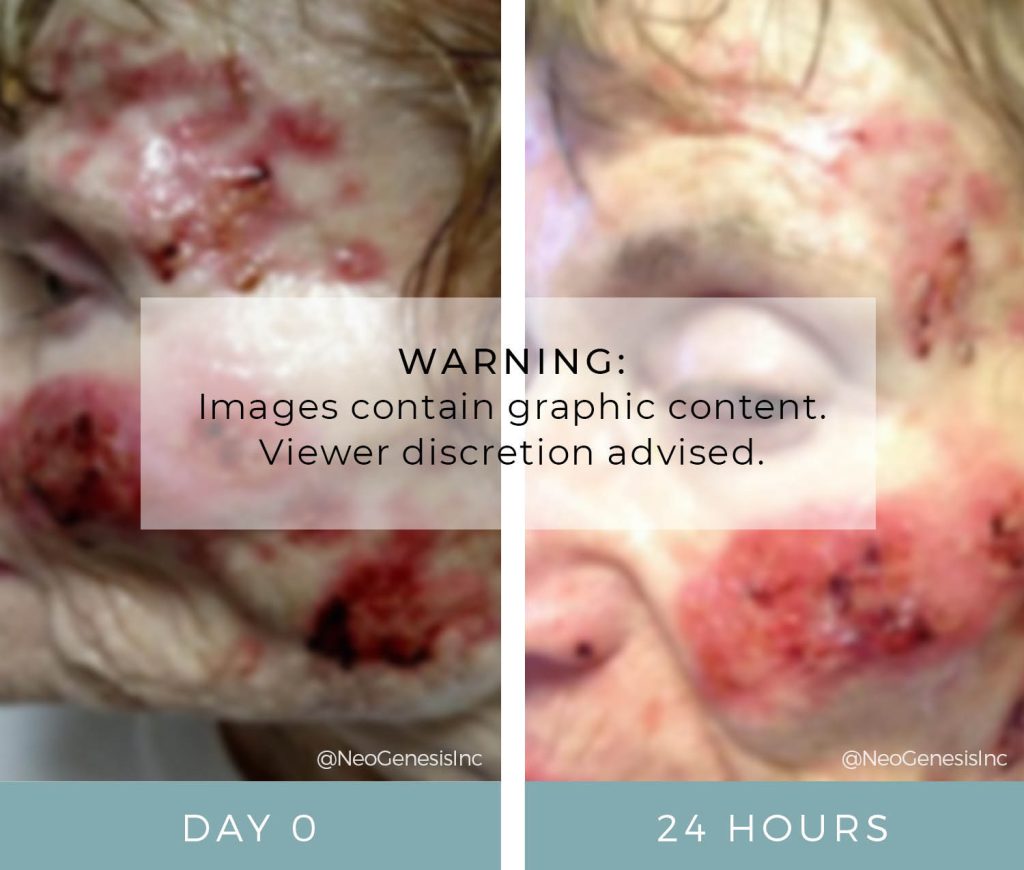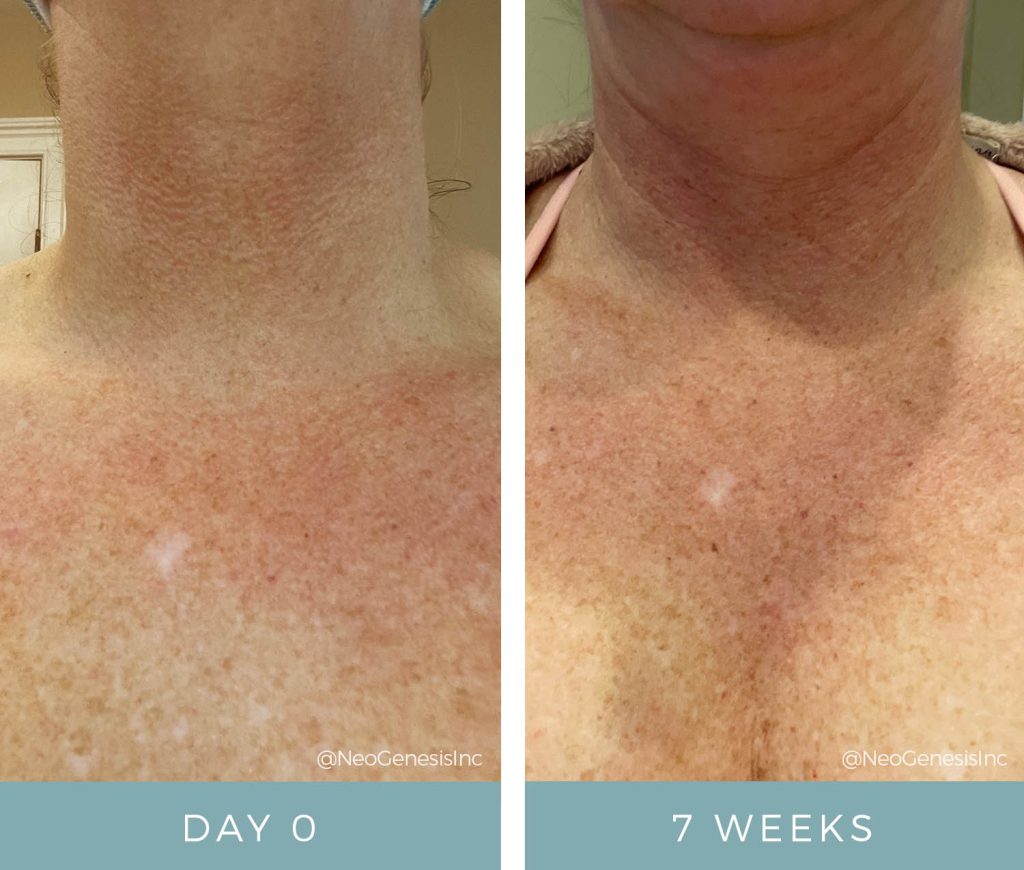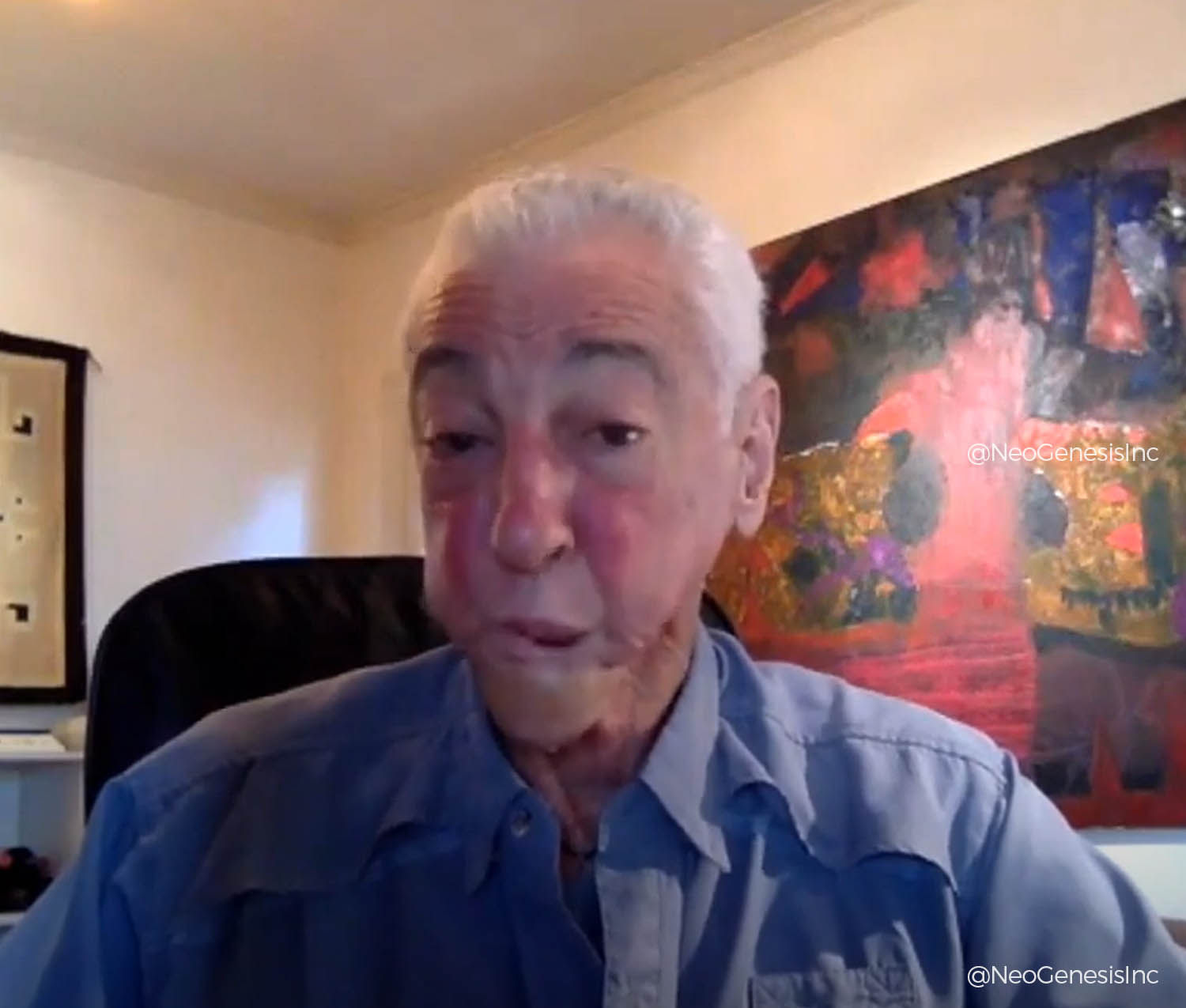Chemotherapy + Radiation

“I have a chronic case of squamous cell carcinoma that started in the mid-1990s as leukoplakia / dysplasia on the gums and finally presented itself twice (2003 and 2009) as full-blown tumors in my lower jaw. The last tumor was so aggressive that it also required an extremely toxic experimental chemotherapy cocktail, followed by the surgical removal of almost all of my lower jaw, gum tissue, and chin skin. These were reconstructed with a fibula bone for the jaw and vascularized free flaps from my thigh for both gum and chin that were micro-surgically connected to the neck vascular system. One month after the surgery I had a 6-week course of head and neck radiation. There really is no way to adequately describe how awful and painful all this was.
For the next 6 years, I dealt with the “collateral damage” from the toxic treatments. My tongue lesions would take 4-5 months to heal. I suffered from severely burned facial and neck skin (I call it “mother of all laser peels”). Despite the many products MD Anderson gave me, and I found on my own, the problems I had would not go away. Then I met NeoGenesis. The Recovery serum NeoGenesis provided me has reduced my healing time on tongue lesions down to 2 weeks or so and I get them far less often. In fact, Recovery actually helped prevent the need for another surgery in 2016. After seeing these results, the MD Anderson team is very interested in learning more about this product. The Skin Serum and Intensive Moisturizer also really helped with the residual redness and the skin on my face and neck. These products have significantly reduced the irritation for the first time in 6 years.
We have got to get the oncology world to know about NeoGenesis. Please let me know any way I can help.” – Dr. Richard Sinkin
PRODUCTS USED:
Recovery, Skin Serum, Intensive Moisturizer
FEATURED VIDEOS
CHEMOTHERAPY + RADIATION SIDE EFFECTS
Cancer is a difficult disease to tackle, and many patients have to go through various treatments in order to combat it. The most common methods used in cancer treatment is chemotherapy and radiation therapy. These treatments utilize powerful drugs and high-energy rays to kill cancer cells and stop them from growing and spreading.
While these treatments are highly effective in fighting cancer, they can also have significant side effects on the skin. The skin is the largest organ in our body and acts as a protective barrier against external threats. During chemotherapy and radiation therapy, the skin is exposed to high levels of toxicity and radiation, which can cause various adverse reactions.
The most common side effect of these treatments on the skin is irritation or inflammation. This can manifest in different forms, including redness, itching, and rashes. Chemotherapy drugs can also cause dryness and peeling of the skin, making it more sensitive and prone to infections.
In addition to irritation, these treatments can also cause changes in skin pigmentation. Some people may experience darkening or lightening of certain areas of their skin. This is because the drugs used in chemotherapy can affect the production of melanin, the pigment responsible for skin color.
Radiation therapy can cause burns and blisters on the skin. This happens when high-energy rays damage healthy skin cells, leading to a painful and uncomfortable reaction. These burns can take weeks or even months to heal completely.
Apart from these visible side effects, chemotherapy and radiation can also weaken the immune system, making the skin more susceptible to infections. Patients undergoing these treatments may also experience increased sensitivity to sunlight, leading to sunburns and potential long-term damage.
It is important for cancer patients undergoing chemotherapy and radiation therapy to take extra care of their skin during treatment. This includes using gentle skincare products, avoiding harsh chemicals or irritants, and protecting the skin from sunlight. Regular moisturizing and keeping the skin clean can also help to alleviate some of the side effects.
While chemotherapy and radiation therapy are essential in treating cancer, they can have significant side effects on the skin. It is crucial for patients to be aware of these potential reactions and take precautions to protect their skin during treatment. With proper care and support, patients can minimize the impact of these side effects and focus on fighting their battle against cancer.

“I have a chronic case of squamous cell carcinoma that started in the mid-1990s as leukoplakia / dysplasia on the gums and finally presented itself twice (2003 and 2009) as full-blown tumors in my lower jaw. The last tumor was so aggressive that it also required an extremely toxic experimental chemotherapy cocktail, followed by the surgical removal of almost all of my lower jaw, gum tissue, and chin skin. These were reconstructed with a fibula bone for the jaw and vascularized free flaps from my thigh for both gum and chin that were micro-surgically connected to the neck vascular system. One month after the surgery I had a 6-week course of head and neck radiation. There really is no way to adequately describe how awful and painful all this was.
For the next 6 years, I dealt with the “collateral damage” from the toxic treatments. My tongue lesions would take 4-5 months to heal. I suffered from severely burned facial and neck skin (I call it “mother of all laser peels”). Despite the many products MD Anderson gave me, and I found on my own, the problems I had would not go away. Then I met NeoGenesis. The Recovery serum NeoGenesis provided me has reduced my healing time on tongue lesions down to 2 weeks or so and I get them far less often. In fact, Recovery actually helped prevent the need for another surgery in 2016. After seeing these results, the MD Anderson team is very interested in learning more about this product. The Skin Serum and Intensive Moisturizer also really helped with the residual redness and the skin on my face and neck. These products have significantly reduced the irritation for the first time in 6 years.
We have got to get the oncology world to know about NeoGenesis. Please let me know any way I can help.” – Dr. Richard Sinkin
PRODUCTS USED:
Recovery, Skin Serum, Intensive Moisturizer
FEATURED VIDEOS
CHEMOTHERAPY + RADIATION SIDE EFFECTS
Cancer is a difficult disease to tackle, and many patients have to go through various treatments in order to combat it. The most common methods used in cancer treatment is chemotherapy and radiation therapy. These treatments utilize powerful drugs and high-energy rays to kill cancer cells and stop them from growing and spreading.
While these treatments are highly effective in fighting cancer, they can also have significant side effects on the skin. The skin is the largest organ in our body and acts as a protective barrier against external threats. During chemotherapy and radiation therapy, the skin is exposed to high levels of toxicity and radiation, which can cause various adverse reactions.
The most common side effect of these treatments on the skin is irritation or inflammation. This can manifest in different forms, including redness, itching, and rashes. Chemotherapy drugs can also cause dryness and peeling of the skin, making it more sensitive and prone to infections.
In addition to irritation, these treatments can also cause changes in skin pigmentation. Some people may experience darkening or lightening of certain areas of their skin. This is because the drugs used in chemotherapy can affect the production of melanin, the pigment responsible for skin color.
Radiation therapy can cause burns and blisters on the skin. This happens when high-energy rays damage healthy skin cells, leading to a painful and uncomfortable reaction. These burns can take weeks or even months to heal completely.
Apart from these visible side effects, chemotherapy and radiation can also weaken the immune system, making the skin more susceptible to infections. Patients undergoing these treatments may also experience increased sensitivity to sunlight, leading to sunburns and potential long-term damage.
It is important for cancer patients undergoing chemotherapy and radiation therapy to take extra care of their skin during treatment. This includes using gentle skincare products, avoiding harsh chemicals or irritants, and protecting the skin from sunlight. Regular moisturizing and keeping the skin clean can also help to alleviate some of the side effects.
While chemotherapy and radiation therapy are essential in treating cancer, they can have significant side effects on the skin. It is crucial for patients to be aware of these potential reactions and take precautions to protect their skin during treatment. With proper care and support, patients can minimize the impact of these side effects and focus on fighting their battle against cancer.







